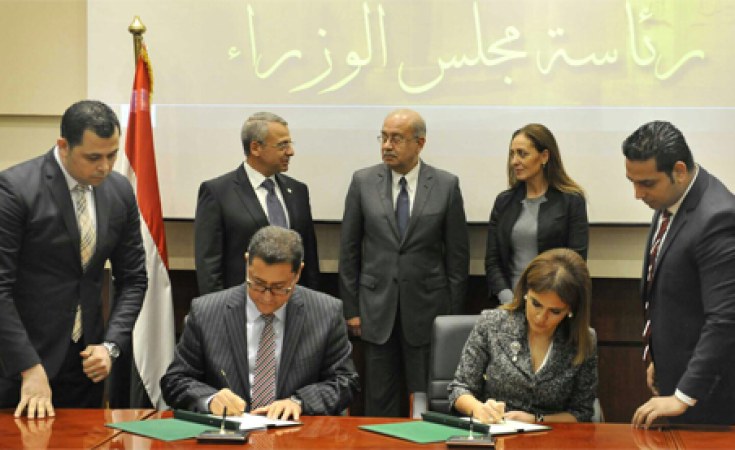The Board of Directors of the African Development Bank (AfDB), has approved a loan of US$ 500 million to finance Egypt's economic governance and energy support program phase II. The loan is the second tranche of a three year, US$ 1.5 billion programmatic series, covering the fiscal years 2015/16 to 2017/18 (July-June). It builds on the first phase of the operation, a US$ 500 million loan that was approved in December 2015 and was fully disbursed in early January 2016.
The economic governance and energy support program is designed to support strong, sustainable and inclusive growth in Egypt by providing a financing incentive for reforms that will help drive fiscal consolidation, improved governance and efficiency in the energy sector, and strengthening of the business operating environment. Overall, the current tranche will provide a significant contribution towards meeting the Government's financing requirement in 2016/17.
The specific objectives of the operation are to: (i) advance fiscal consolidation through higher tax revenue collection, and improved fiscal transparency and management; (ii) ensure sustainable energy supply by improving governance in the power and gas sectors, reforming energy subsidies and rationalization of tariffs, and enabling private sector investments in cleaner forms of energy to promote green growth; and (iii) strengthen the business environment by improving investment and industrial sector regulations, and supporting open competition, transparency, and financial inclusion. The loan operation's cross-cutting themes are also important and aim to indirectly help: (i) increase support for the poorest by ensuring more pro-poor spending is directed via targeted social safety nets; and (ii) raise growth and job creation especially for youth by supporting more business- and investment-friendly policies and regulations.
The Egyptian Authorities have recently demonstrated their continued commitment to the implementation of reforms by liberalizing exchange rate policy in early November. A market determined exchange rate is already leading to higher capital inflows, increased foreign exchange reserves, and an improvement in external competitiveness. The earlier effort this year to switch to a value added tax is also delivering an improvement in fiscal strengthening, which will help reduce the fiscal deficit and the domestic debt stock over the medium term to a sustainable level. Energy sector reforms are another crucial component of the authorities' reform agenda and annual electricity tariff and fuel price adjustments are expected to continue to complement the fiscal consolidation over the coming years. A range of business, investment, and industrial sector reforms are in the pipeline, which, when approved into law will complement the above efforts, helping underpin Egypt's economic turnaround with a clear focus on helping support the poorest via improved targeting of social spending on health, education, and job creation.
"The Bank's support through this operation will contribute to sustaining the government's reforms agenda, provide further fiscal space to improve the targeting of public action to the most vulnerable segments of the population, and support Egypt in improving the quality of life and well-being of its citizens".


